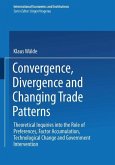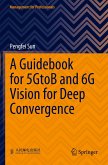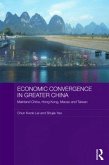This collection of original articles looks at the convergence hypothesis, which asserts that since the Second World War, industrial countries were growing increasingly homogeneous in terms of productivity, technology, and per capita incomes. The book examines patterns displayed by individual industries within countries as well as the aggregate economies, influences that underlie the process of convergence, and the role that convergence has played and promises to play in the future. Contributors include: Moses Abramovitz, Alice M. Amsden, Magnus Blomstrom, David Dollar, Takashi Hikino, Gregory Ingram, William Lazonick, Frank Lichtenberg, Robert E. Lipsey, Angus Maddison, Gavin Wright, and Mario Zejan.
Hinweis: Dieser Artikel kann nur an eine deutsche Lieferadresse ausgeliefert werden.
Hinweis: Dieser Artikel kann nur an eine deutsche Lieferadresse ausgeliefert werden.








